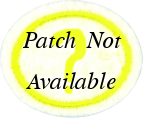1
Relate briefly the story of the beginning of the postal service in your country.
2
How is the history of your country told in postage stamps?
3
What are the rates for first-class mail in your country?
4
What country does not have its name on its stamps and why?
- Great Britain.
- Why? : The stamp was originally for use only within the United Kingdom of Great Britain and Ireland and as such was in effect initially a local stamp. For this reason the name of the country was not included within the design, a situation which continued by agreement with foreign post offices, provided the sovereign’s effigy appeared on the stamp.
5
Know the meaning of the following:
5a
Coil stamp
- A coil stamp is a type of postage stamp sold in strips one stamp wide. The name derives from the usual handling of long strips, which is to coil them into rolls, in a manner reminiscent of adhesive tape rolls. A large percentage of modern stamps is sold in coil form, since they are more amenable to mechanized handling in large quantities than either sheet stamps or booklet stamps.
5b
Booklet stamp
- A postage stamp booklet is a set of one or more small panes of postage stamps, usually totalling about 10–20 stamps, folded over and placed in a cardboard cover. Smaller and easier to handle than a whole sheet of stamps, in many countries booklets have become a favored way to purchase stamps.
5c
Perforations
- A perforation is a hole made by puncturing a surface. However, the term frequently refers to the practice of creating a long series of holes so that paper can be torn more easily. Postage stamps are one common application of this, where small round holes are cut in lines to create individual pieces.
5d
Perforation gauge
File:Perforation gauge.jpg
A Penny Red stamps measuring at 14 perfs-per-inch on a perforation gauge
A tool that measures the perforations in stamps. It's like a ruler.
5e
Definitive stamps
- A definitive postage stamp is a regular issue stamp that is part of a definitive issue or definitive series consisting of a range of denominations sufficient to cover all postal rates usefully. (An "issue" generally means a set that is put on sale all at the same time, while a "series" is spread out over several years, but the terms are not precise.)
5f
Commemorative stamps
- A commemorative stamp is a postage stamp issued to honor or commemorate a place, event or person. Most postal services of the world issue several of these each year, often holding first day of issue ceremonies at locations connected with the subjects. Commemorative stamps are usually used alongside ordinary or regular-issue stamps of the time, although in some cases their use has been obligatory.
5g
Hinges
- Stamp hinges are small, folded, rectangular pieces of paper coated with a mild gum. They are used by stamp collectors to affix postage stamps onto the pages of a stamp album. The short end is moistened and affixed to the stamp, the long end is likewise affixed to the page. The hinge keeps the stamp on the page while still allowing it to be lifted to examine the back (for instance to see the watermark or expert marks).
5h
Plastic mounts
- Clear plastic pockets with adhesive on the back. The stamp is placed inside the mount and the mount is attached. The stamp is preserved in it's original collected condition.
6
Have a knowledge of how to soak stamps from paper and how to dry them.
- Do not soak stamps from differently colored paper together.
- Use lukewarm water.
- Make sure the stamps are completely submerged.
- If the stamp does not pull away cleanly, try soaking it more.
- Dry each stamp separately, face down on newspaper (no colors on newspaper).
- Do not allow stamps to touch each other or overlay while drying.
7
Make a collection of at least 750 stamps. (No two stamps alike.)
- Better get started.
8
Properly classify these stamps:
8a
As to country.
8b
In series; that is, according to year and design.
- Arrange the stamps you have collected.
9
Mount your stamps with gummed hinges or plastic mounts. (Plastic mounts are preferred for mint stamps.)
- In an album.
10
Choose a topical idea and develop a display of at least nine pages, including a title page, suitable for a stamp club show, Pathfinder Fair, etc. Display should be artistically arranged, neatly labeled and mounted, showing careful thought and research. Be sure to include several covers or cachets.
References

